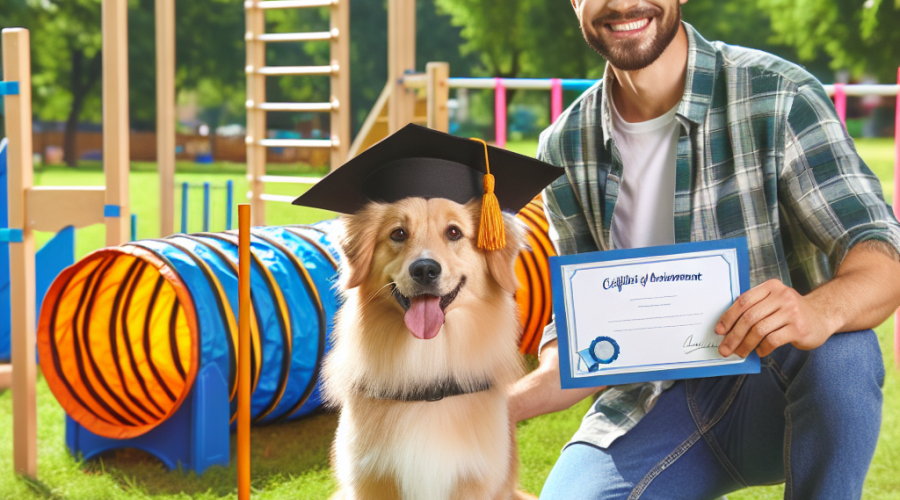Transformative Training: Unleash Your Pet’s Hidden Talents
When you bring a new pet into your home, it’s like welcoming a bundle of untapped potential. Beneath that fluffy exterior lies a world of abilities and talents waiting to be discovered and nurtured. Transformative training isn’t just about teaching your pet the basics of sitting and staying; it’s about unlocking a deeper level of communication and understanding between you and your furry companion, revealing skills you never knew they had.
Understanding your pet’s individual personality is the cornerstone of transformative training. Just like humans, every animal is unique, with its own quirks, preferences, and learning style. A one-size-fits-all approach doesn’t cut it when you’re aiming to truly connect with your pet. It’s about tailoring your training methods to suit their character, whether they’re a curious cat, a playful pup, or a sensitive soul.
The first step in this journey is observation. Spend time watching your pet in different scenarios. How do they react to new environments or strangers? What motivates them – is it food, toys, or perhaps verbal praise? These insights are invaluable when developing a training strategy that plays to their strengths and respects their limits. Remember, the goal here is to build trust and foster a positive learning atmosphere.
Engagement is the magic word when it comes to effective training. You want your pet to be as excited about training as you are. That means keeping sessions short, sweet, and brimming with enthusiasm. A bored pet is an unresponsive pet, so inject a dose of fun into the mix. Use games and playful challenges to teach commands and tricks. This not only keeps their attention but also strengthens the bond between you.
Consistency is another pillar of transformative training. Your pet needs to understand what’s expected of them, and this clarity comes from a consistent approach. If the rules keep changing, confusion reigns, and progress stalls. Whether it’s the commands you use or the rewards you give, ensure that everyone in your household is on the same page to provide a stable learning environment for your pet.
But what happens when you hit a snag? Frustrations can arise when your pet doesn’t respond as expected. Patience is your best friend in these moments. Training is a process, with ups and downs. Recognise that setbacks are just part of the journey. Take a breath, reassess, and remember that every pet moves at their own pace. Celebrate the small victories, and don’t dwell on the hiccups.
Shifting the focus onto mental stimulation opens up a whole new world for your pet. Sure, physical exercise is crucial, but mental challenges can truly transform your pet’s behaviour and cognition. Puzzle feeders, hide-and-seek games, and new tricks are excellent ways to keep their brains ticking. As their problem-solving skills improve, you might just be surprised at how clever your pet really is.
It’s not all about tricks and obedience, though. Transformative training also means tapping into your pet’s natural instincts and abilities. Does your dog have a nose that could rival a detective’s? Scent work could be their calling. Is your cat an acrobat in disguise? Maybe it’s time to set up an agility course. It’s about recognising and nurturing these innate talents to provide a fulfilling and enriched life for your pet.
Finally, don’t forget to reflect on your own learning curve. Training your pet is as much about teaching them as it is about you learning to be a better pet parent. It’s a dance of give and take, where communication is key. Listen to what your pet is telling you through their body language and behaviour. Adjust your methods as you both grow and learn together. It’s this adaptation and mutual understanding that leads to the most rewarding of relationships.
Transformative training is about much more than just commands and routines; it’s about embarking on a dynamic journey with your pet, one that fosters growth, trust, and a deeper connection. By being observant, engaging, consistent, and patient, and by focusing on mental stimulation and natural talents, you’ll not only unleash your pet’s hidden abilities, but you’ll also enhance the bond you share. It’s a pathway to a happier, more harmonious life together, filled with discovery and mutual respect. So, embrace the process and watch in wonder as your pet blossoms into the capable and confident companion they were always meant to be.
FAQs
Q: What exactly is transformative training for pets?
A: Transformative training involves advanced behavioural and skill training techniques that unlock and develop a pet’s latent abilities. It’s a comprehensive approach designed to enhance a pet’s intelligence and problem-solving skills.
Q: How can transformative training benefit my pet?
A: By engaging in transformative training, pets can achieve improved mental stimulation and greater behavioural flexibility. This leads to a more content, well-adjusted pet that can adapt to a variety of situations and commands.
Q: At what age should I start transformative training with my pet?
A: While pets can learn at any age, starting transformative training as early as possible is beneficial. Younger pets often have more plasticity in their learning, but older pets can also show remarkable progress with the right training approach.
Q: Can transformative training help with my pet’s behavioural issues?
A: Yes, transformative training can be specifically tailored to address and correct unwanted behaviours. It focuses on positive reinforcement and consistency to promote better behaviour patterns.
Q: What kind of talents can be uncovered through transformative training?
A: Transformative training can uncover a wide range of talents, from basic obedience and agility to more complex tasks like scent work, trick performance, and even assistance in daily chores. The potential is vast and largely depends on the individual pet’s interests and aptitudes.

